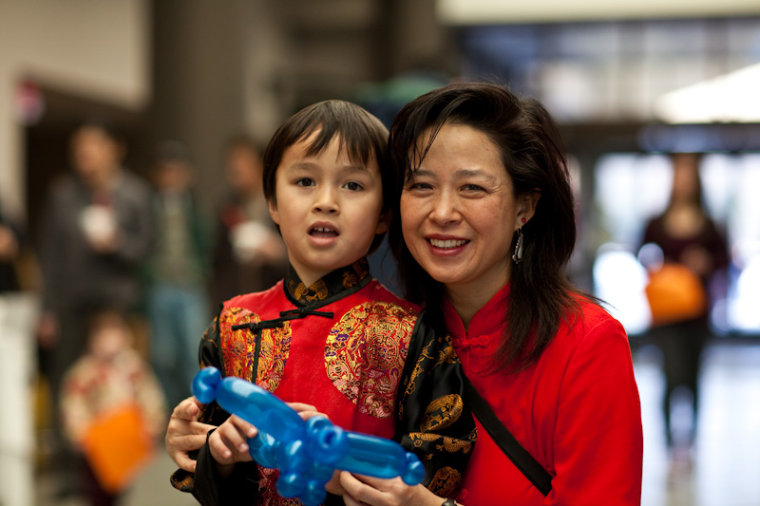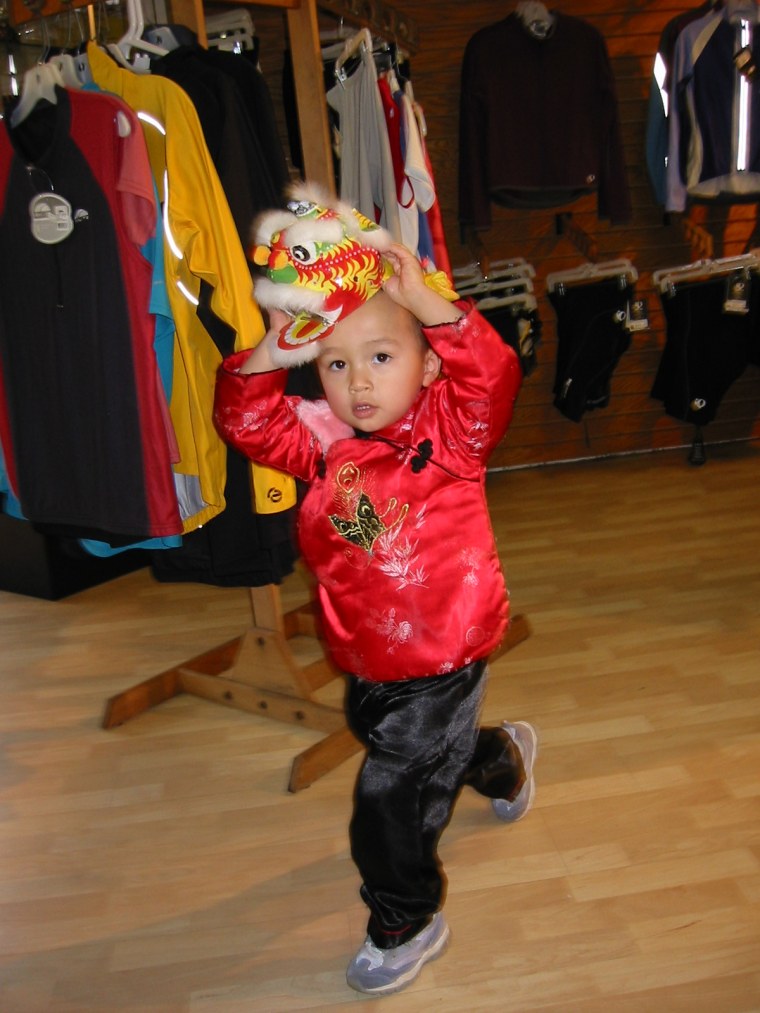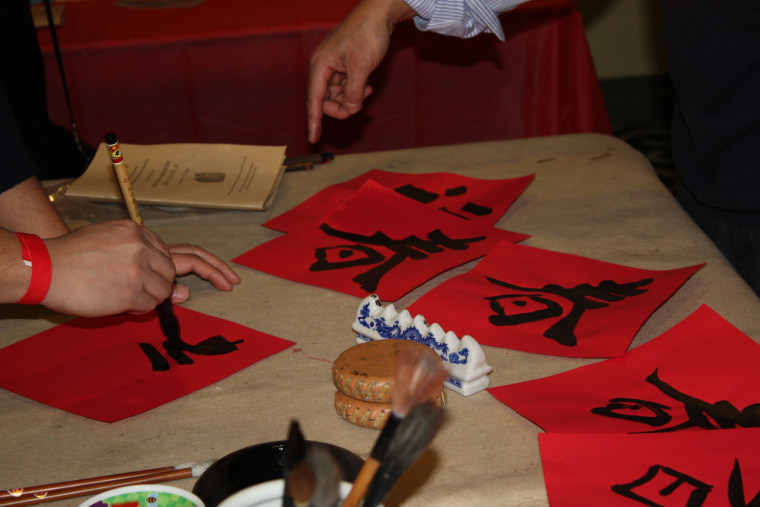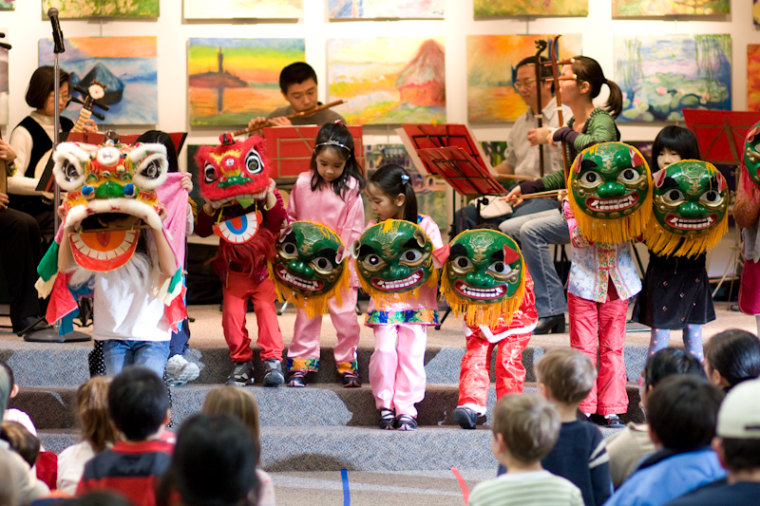The second week of January, my friend asked if I could take a look at his book manuscript and help him edit it.
“Sure,” I replied, “but not until after New Year’s.”
“Uhhhh,” he stammered. “But it’s already after New Year’s.”
“Not that New Year’s,” I laughed. “Chinese New Year’s.”
Obviously.
Chinese (or Lunar) New Year is the busiest time of year for my children and me. I am often asked to give presentations about Chinese New Year’s traditions in schools and libraries. The children often perform in the community with their Chinese lion dance, music, dance, and yo-yo troupes. We all have Chinese school responsibilities and Chinese community commitments, plus all our regular school stuff and work stuff: homework, taxes, FAFSA.

I am always so focused on Chinese New Year that I often completely forget about all the other January and February holidays, like Valentine’s Day and Fat Tuesday, until the elementary school teachers send home the class lists for Valentine cards and paczkis show up in the grocery store.
And did someone say something about a football game?
We are supposed to have a big Chinese New Year’s Eve meal together, with a whole fish to represent abundance and wealth in the new year, a whole chicken to represent the whole family together, soybean sprouts to represent all that you wish for, new year’s cake to see how high fortunes will rise in the new year, eggplant for good luck, lettuce for good fortune, pork for wealth, duck for fertility…
We are often so tired, however, that we make do with the leftovers from some performance or other.
This year, we had Bengali fish curry.

We are also supposed to prepare for Lunar New Year by cleaning the entire house before New Year’s Day, sweeping the floor from the outside in, decorating the house with poems and good luck wishes written in Chinese calligraphy on red paper, buying new red clothes for all the children (who only wear black now), giving the children red envelopes of crisp new lucky money, visiting the Buddhist temple, and all sorts of good luck things to ensure a good clean start for the new year.
That has never happened on time.
OK, OK, it has never happened at all.
(There will be plenty of time to clean after the children are grown.)
When my children were little, my friend Carol lent me the definitive book about Chinese New Year. A massive book, I spent a month reading all the stories to my children. Every night, after the children fell asleep, I studied the recipes in the book and ended up in the kitchen, hungry, lonely, cooking different Chinese New Year’s recipes at midnight.
My mother scolded that I was turning my children into superstitious old ladies before they even reached elementary school. Modern and educated, my parents did not need these old world superstitions.
But I did.
I did not learn about Chinese New Year’s until I was 12 years old, and I fantasized about the perfect big warm family gathering that I learned about in Chinese school. Sometimes, when the holiday fell on a weekend, I could convince my parents to invite our relatives over for hot pot. More often, my parents, busy with work and school, would forget — as if it was just another day.
I did not understand how they could forget such a thing until I grew up and worked on Christmas Day in another country that did not celebrate Christmas.

Earlier this year, I saw many of my parents’ college friends at my father’s funeral. These friends of my parents all came to America at about the same time, as international students and young professionals. I called them all "auntie" and "uncle," and they all watched me grow up. I knew their houses. I knew their kids. Other than relatives, they were the only Chinese community that we had.
It had been years since I had seen all my aunties and uncles, and being with them felt like being home. I was so proud to introduce my children to them. I asked them to tell my children funny stories about my parents in their youth, only 25 years old, newly married, young parents, navigating a new country in a new language — the first in their families to travel so far from home.
My brother, who is seven years younger than me, does not remember any of these aunties and uncles. My cousins do not know who they are. My children are curious why I am the only one who knows everyone from every phase of my parents’ lives.
"Although I am not an immigrant, I am also far from home, away from family. I am privileged to speak English fluently and to not experience the overt racism of a century ago, but I still need to create community around my children."
They were my parents’ community.
I have that sort of community now with the “Chinese school moms” and the “International Night moms” — my children’s friends’ moms with whom I have waited, worried, carpooled, complained, and volunteered together on school and community events. Our Chinese school New Year’s celebrations may not be completely traditional, but we are together.
Noticing how close Hsiang-Yi and I are, a man once asked how long we had been friends, and we laughed, “Since preschool!” What we didn’t tell him was that we meant since our kids were in preschool.
I am teaching a course on Asian-American history this semester at the university, and I am reading many first person accounts by early Asian immigrants at the turn of the century about how hard they worked, how much they suffered, and the community groups they created to overcome the challenges they faced in America.
Although I am not an immigrant, I am also far from home, away from family. I am privileged to speak English fluently and to not experience the overt racism of a century ago, but I still need to create community around my children, so grateful for the other “Chinese school moms” that help watch out for my children (and help feed my children), as we continue to navigate our lives together.
Follow NBC Asian America on Facebook, Twitter, Instagram, and Tumblr.
